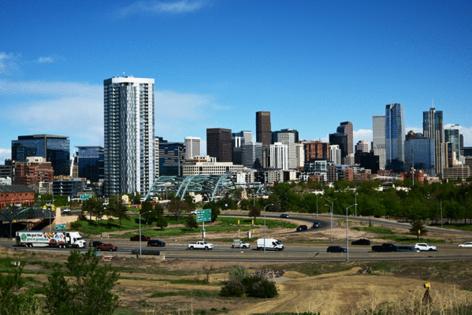Goodbye, Five Points Jazz Festival: Year-round jazz grant program to replace annual Denver event
Published in Entertainment News
DENVER — Denver is saying goodbye to the Five Points Jazz Festival, with a plan to replace the 20-year-old event with a year-round grant program meant to uplift the local jazz scene.
Denver Arts & Venues, a city and county agency, made the announcement Thursday about the creation of the Five Points Jazz Activation Fund — and the simultaneous demise of the free one-day event in the Five Points neighborhood.
The first Five Points Jazz Festival took place more than two decades ago in an area historically known as the Harlem of the West. In recent years, Denver Arts & Venues reported that tens of thousands of people gathered for the annual music festival in June.
But no more. Instead, a pot of $225,000 will be allocated as grant money for businesses, musicians, nonprofits and more to be spent on initiatives tied to jazz.
Steps on how to apply have not yet been announced, but applications will open after Jan. 1. A committee will evaluate and approve the grants, said Brian Kitts, spokesperson for Denver Arts & Venues.
“This money is specifically for Five Points,” Kitts said. “This money is intended to stay in that neighborhood.”
Denver City Councilman Darrell Watson, who represents Five Points in District 9, said the decision was made in collaboration with his office, Denver Arts & Venues and the Five Points Business Improvement District. Several performers at the jazz festival were also consulted, Watson added.
Part of his reasoning to create the new grant program is its ability to directly fund musicians.
At the Five Points Jazz Festival, “the jazz artists were not receiving the bulk of the dollars the city was spending,” Watson said. “This is an increase in funding directly to jazz artists and performance within the jazz capital of Denver.
“And I think this is a good change,” he added.
Last year, the event cost around $400,000, with barricades, portable toilets and more adding to the price tag, Kitts said. He described the festival as fairly small at its outset, but it had expanded over time.
“At some point, an event like that may outgrow that particular part of the neighborhood,” Kitts said.
It was also competing with City Park Jazz and the new Denver Jazz Fest taking place in April, he added.
“Collectively, we decided that a one-day event was probably not fulfilling our mission as a city agency,” Kitts said. “The bottom line is that distributing a series of grants to people associated or adjacent to the jazz community may be a better way to support the art form and the neighborhood.”
The festival also impacted businesses along Welton Street, which were impaired by event fencing in the past. The grant program “provides an opportunity for them to be directly involved with having jazz artists within their business,” Watson said.
A large portion of the $225,000 — around $125,000 by his estimate — will be allocated to the Five Points Business Improvement District to set up programming throughout the year along the Welton Street corridor, Watson added. The supermajority of that money will go toward local businesses and artists who perform there.
Representatives of the Five Points Business Improvement District didn’t immediately respond to an interview request.
Watson envisions the Five Points Jazz Activation Fund will help the neighborhood revive its reputation as the Harlem of the West.
“You will on a regular basis throughout the year — no matter when you come to Five Points — have the opportunity to see, hear and experience jazz,” Watson said.
Jameka Lewis, the branch supervisor of the Blair-Caldwell African American Research Library on Welton Street, is hopeful about the intention to expand the footprint of the jazz community in Denver. She wants increased visibility for the genre, its artists and composers.
But she also notes that the absence of the Five Points Jazz Festival will be felt.
It let visitors experience the community at one of its liveliest events, while also honoring locals for their contributions.
“The Five Points Jazz Festival itself has a longstanding history and has contributed pretty significantly to the Five Points neighborhood,” Lewis said. “So in that sense, it is a loss for the community.”
And she’s unsure whether Five Points residents broadly know about the change yet.
Looking forward, Lewis wants to ensure that the legacies of Black musicians like Charles Burrell, Dianne Reeves and Louise Duncan continue to be acknowledged.
“There’s just so much of that local jazz history that isn’t always elevated in venues and ways outside of the Five Points Jazz Festival,” Lewis said. “I just want to make sure that their stories are still being told.”
©2024 MediaNews Group, Inc. Visit at denverpost.com. Distributed by Tribune Content Agency, LLC.













Comments